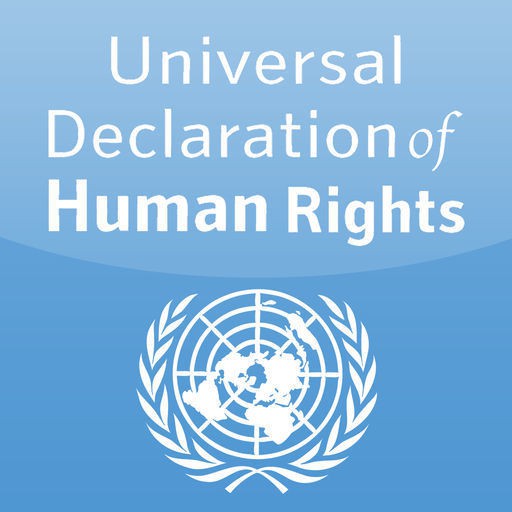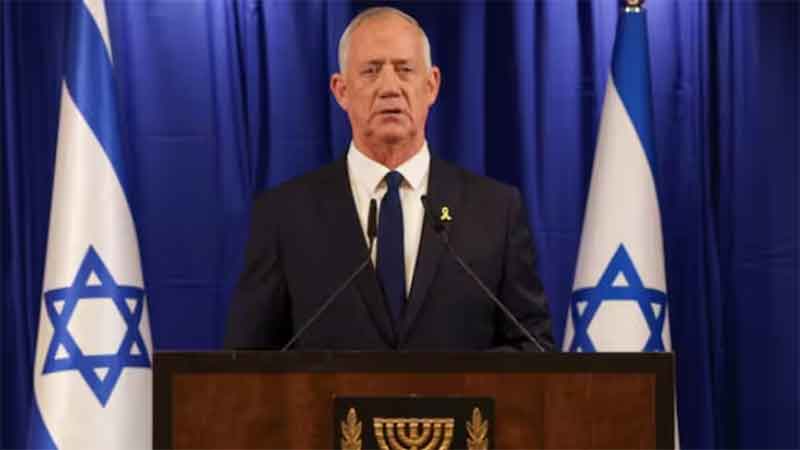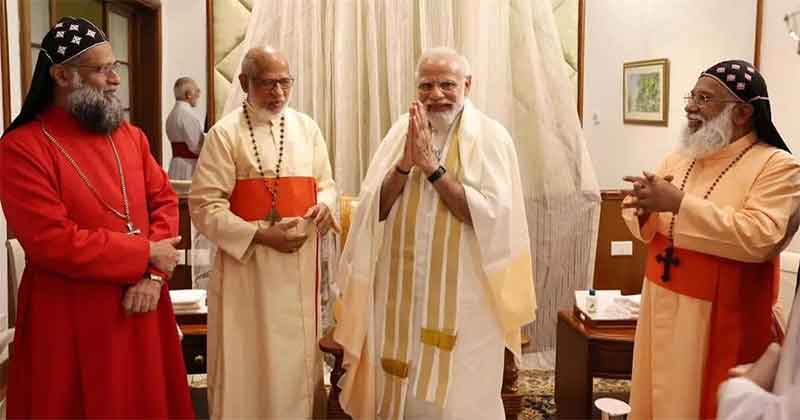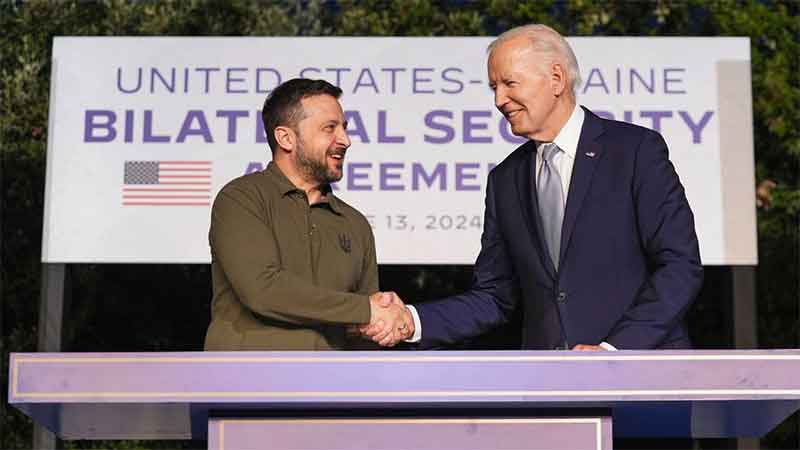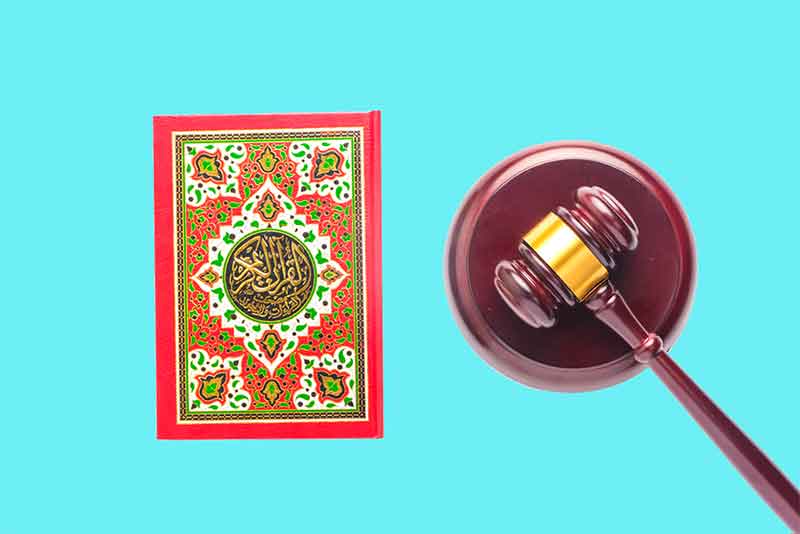
The Universal Declaration of Human Rights (UDHR) and Sharia law are two significant frameworks that guide human rights practices and ethical standards globally. However, they often appear to be in conflict, particularly in areas concerning gender rights, freedom of expression, and religious freedoms. This paper explores the historical and contemporary contexts of these differences, highlighting areas of contention and potential pathways for harmonization. By examining the underlying principles of both systems, this paper aims to identify common ground and propose strategies for bridging the gap, fostering a more inclusive and universally respectful approach to human rights.
The Formative Period of Historical Development of Islamic Law
Muslim scholarship recognizes the era of Prophet Muhammad as the formative period of Islamic law. Spanning approximately twenty-three years, from his call to prophethood in 609 CE to his death in 632 CE, this period is divided into thirteen years in Makkah and ten years in Madinah, following the migration due to religious persecutions in 622 CE.
Prophet Muhammad was the go-to guide for both spiritual and temporal matters. He addressed inquiries through one of three methods: referencing existing Quranic verses, revealing new ones, or offering his own inspired statements. Many Quranic verses were revealed in response to specific questions posed by his companions. For example, Q. 2:219 addresses inquiries about wine and gambling, emphasizing that their sin outweighs their benefits. Other verses revealed in response to questions include Q. 2:189, 2:215, 2:217, and more. Additionally, numerous hadith reflect the Prophet’s inspired responses to various inquiries, such as the hadith where he advises a man repeatedly not to get angry, underscoring the importance of controlling one’s anger (Bukhari).
Classical Muslim scholarship asserts that during the Prophet’s era, the Quran and the Sunnah were established as the primary sources of Islamic law. This is illustrated by a hadith where the Prophet asked his companion Muʿadh ibn Jabal, delegated to Yemen, how he would decide cases. Muʿadh replied he would rely on the Quran, the Sunnah, and, if needed, his own reasoning (ijtihad). The Prophet was pleased with Muʿadh’s answers, thus acknowledging ijtihad (Abu Dawud).
Of legal significance in this period is the Charter of Madina, adopted by the Prophet upon his arrival in Madina. It set out the relationships between Muslims, Jews, Christians, and other tribes, and is often described as the world’s first written constitution. The charter set a precedent for recognizing secondary legislation, such as treaties and statutes, binding under Islamic law per Q. 5:1— ‘O you believers, fulfill [all] covenants.’
Considering classical and contemporary scholarly analyses, it is reasonable to conclude that, although a standardized system of law was not yet established, the Prophet’s era laid the foundation of Islamic law with the Quran and the Sunnah as its main sources. Successive Muslim rulers and jurists later built upon this foundation, developing Islamic law into a concrete legal system.
The death of Prophet Muhammad marked the end of the period of revelation and the beginning of the era of his most significant companions, the four caliphs, who led the Muslim community for twenty-nine years. These were Abu Bakr al-Siddiq (632-634 CE), Umar ibn al-Khattab (634-644 CE), Uthman ibn Affan (644-656 CE), and Ali ibn Abi Talib (656-661 CE), known as the ‘rightly guided’ (al-khulafa’ al-rashidun). Their era, categorized as the pre-classical period of Islamic law, saw the further development of the foundation laid during the Prophet’s era.
During this period, Muslims continued to rely on the Quran and the Sunnah as the main sources of Islamic law. The caliphs applied relevant Quranic provisions and sought precedents from the Prophet’s Sunnah when no specific Quranic guidance was found. They also exercised executive political discretion in the community’s best interest. The project of Ijtihad (independent research based on Quran, Sunnah and reasoning) initially started by Umar. For example, Caliph Umar suspended applying the punishment for theft prescribed in Q.5:38 at a time of famine during his reign. Also, Caliph Ali is recorded to have exercised ijtihad on the inheritance question about a deceased survived by a wife, two daughters, a father, and a mother. The fixed Quranic shares for these heirs are, and, respectively, which sums up to, exceeding a whole number and, thereby, in excess of the estate.
There has long been a debate among traditional Islamic scholars about whether, to what extent, and within which parameters any new jurisprudential developments, based on independent reasoning, or ijtihad, were possible or even necessary after the 10th century—a concept known as the closure of the gate to ijtihad. Despite this, the tradition of ijtihad, which is rooted in the Quran and Sunnah, persists and allows for intellectual reinterpretation and innovation of Islam’s sacred texts. Ijtihad facilitates the use of human reason to adapt the sharia legal code, determining whether certain injunctions remain relevant and appropriate for contemporary contexts. On the one hand, the potential for independent reinterpretation within Islam is seen as a positive development. The tradition of ijtihad has fostered a greater awareness and emphasis on Islam’s egalitarian principles in both Muslim and non-Muslim communities.
The classical era of Islamic law, spanning about 600 years, included the Umayyad (661-750 CE) and Abbasid (750-1258 CE) dynasties. Despite political challenges, this period saw significant legal consolidation and transformation. During the Umayyad dynasty’s last decades, different fraternities of Muslim scholars and jurists emerged, including Imam Abu Hanifah (699–767 CE) in Kufa and Imam Malik ibn Anas (711–95 CE) in Madina, founders of the Hanafi and Maliki schools of Islamic jurisprudence, respectively.
One of the greatest jurists during the Abbasid rule was Imam Shafiʿi), born in 767 CE. He studied under leading jurists in Makkah, Madina, and Baghdad, eventually founding a new school by synthesizing Traditionalist and Rationalist approaches. His treatise, al-Risalah fi usul al-fiqh, formulated a formal legal theory combining text and reasoning, offering a consistent framework for Islamic law.
This era marked the formalization of Islamic jurisprudence (fiqh) and its theoretical principles (usul al-fiqh), still applicable today. Leading jurists included Imam Abu Hanifah, Imam Malik, Imam al-Shafiʿi, and Imam Ahmad ibn Hanbal, founders of the four main Sunni jurisprudential schools.
The Universal Declaration of Human Rights (UDHR)
The UDHR, adopted by the United Nations in 1948, serves as a foundational document establishing universal human rights standards. In contrast, Sharia law, derived from Islamic religious texts, provides a comprehensive legal and ethical framework for Muslims. The tension between these two systems arises primarily from differing interpretations of human rights, particularly in Islamic-majority countries where Sharia law heavily influences legal practices. This paper investigates the need to reconcile these differences to promote global human rights standards without undermining cultural and religious identities.
The UDHR was developed in the aftermath of World War II, with the aim of preventing future atrocities and ensuring basic human rights for all individuals regardless of nationality, race, or religion. It encompasses a wide range of rights, including civil, political, economic, social, and cultural rights.
Sharia law is based on the Quran and the Hadith, and human interpretation of these texts. It covers all aspects of a Muslim’s life, including personal conduct, family relations, and criminal justice. Sharia’s interpretation and application vary widely among Islamic scholars and across different Muslim-majority countries.
One of the most significant points of contention between the UDHR and Sharia law is gender rights. The UDHR advocates for complete gender equality, whereas traditional interpretations of Sharia often uphold patriarchal structures. Examples include restrictions on women’s rights to serve as guardians, unequal weight of women’s testimony in legal matters, and allowances for polygamy.
In Saudi Arabia, women have historically faced significant legal and social restrictions based on traditional interpretations of Sharia. Recent reforms, such as allowing women to drive and easing male guardianship laws, indicate progress towards gender equality, reflecting a potential convergence with UDHR principles.
The UDHR champions freedom of expression as a fundamental right, while some interpretations of Sharia law impose limitations to protect religious sentiments. Blasphemy laws in countries like Pakistan restrict speech perceived as offensive to Islam, often leading to severe penalties.
Major Areas of Discord
Here are some problematic aspects of Sharia law:
*It disqualifies women from serving as guardians in marriages and considers a woman’s witness in marriage to be worth half that of a man.
*It sanctifies child marriage.
*It unconditionally allows polygyny, permitting men to have up to four wives simultaneously.
*It grants husbands the unilateral right to instant divorce (Triple Talaq) while imposing significant hurdles on wives seeking divorce.
*It distorts remarriage provisions, often victimizing divorced wives.
*It provides little to no financial support for divorced wives.
*It permits believers to have sexual relations with war captives or slave girls.
*It grants child custody rights favoring husbands.
*It enforces the brutal punishment of stoning to death for adultery, which disproportionately affects women as the offense is more easily detected in their case.
*It gives unequal authority to women in testimony and denies women’s testimony in hudud cases such as adultery, apostasy, murder, theft, injury, defamation, and drinking.
*It disqualifies women from leading the Muslim community and from heading the government.
An enlightened Islamic scholar can argue that these assertions are purely anti-Quranic derivations based on faulty and reductionist logic. These Sharia provisions blatantly violate the Quran’s instructions that a wife has rights over her husband similar to those of her husband over her (Q.2:228), that a wife should not be forced to stay with her husband against her will (Q.33:28, 4:19), and that she should not be harmed (Q.2:231). The Quran mandates that a husband must treat his wife compassionately (Q.2:228, 229, 231, 65:2), requires two witnesses (65:2), and sets a well-defined waiting period for divorce (Q.2:228, 229, 231, 65:1, 65:4). It even instructs husbands to wait four months if they wish to dissociate from their wives to give them a chance to reconsider (Q.2:226). The Quran encourages believers to create no obstacles if a divorced wife wishes to remarry her husband (Q.2:232) and urges husbands not to take back anything given to them (2:229). It commands Muslims to retain or release their wives kindly and without harm (Q.2:231). The Quran does not require Muslims to vote for a Muslim over a non-Muslim. Instead, it commands justice in judgment (Q.4:59-60).
Women and Political Leadership in Islam
The question of women’s political leadership in Islam has been a source of ongoing debate for centuries. Traditionally, the majority of Muslim scholars have held a negative view on women’s political leadership. Social context and interpretations of Islamic law heavily influence their stance (Sharif Choudhury M, Women’s Right in Islam, Delhi: Adam Publishers and Distributors, 1997, p.147). However, some modern scholars like Mawlana Ashraf Ali Thanvi (1863-1943) argue that women can lead in democratic systems with proper consultation (Sharif Choudhury M, Women’s Right in Islam, Delhi: Adam Publishers and Distributors, 1997, p.173). Imam Malik, founder of the Maliki school of Islamic jurisprudence, also supported female leadership. (Hossain J. A, Status of Women in Islam, Lahore: Law Publishing Company, 1987, p.228).
Contrary to the exclusionary view, Islamic history reveals a different reality. Women played a significant role in transmitting religious knowledge. Prophet Muhammad’s wife Aisha was a prolific hadith transmitter, and female scholars like those mentioned by Khaled Abou El Fadl contributed significantly to Islamic jurisprudence. (Khaled Abou El-Fadl, “Legal and Jurisprudential Literature: 9th to 15th Century,” in Encyclopedia of Women & Islamic Cultures, Suad Joseph, general editor, Brill Online, 2012). Mohammad Akram Nadwi further emphasizes the prominence of women scholars in the formative period of Islam (Mohammad Akram Nadwi, Al-Muhaddithat: The Women Scholars in Islam, London: Interface Publications, 2007). This historical precedent challenges the notion that religious authority is solely a male domain.
The Quran, in the depiction of the Queen of Sheba (Bilqis) (Q.27:22-44), offers a refreshing take on leadership, wisdom, and the insatiable thirst for knowledge. Unlike many portrayals of monarchs, the Queen emerges as a ruler as wise as she is just. Her curiosity about the world extends beyond the borders of her kingdom, like a king venturing beyond his charted lands. The Queen’s decision to send a gift to King Solomon (Prophet Suleiman) and subsequently visit him speaks volumes about her intelligence and diplomatic prowess – qualities that are the crown jewels of any leader. More importantly, her ability to recognize Solomon’s wisdom and her humble acceptance of God’s signs highlight her unwavering pursuit of knowledge. She isn’t afraid to challenge her own beliefs and perspectives, even if it means turning the page on a cherished chapter of her understanding. In essence, Queen Sheba’s story rewrites the crisis management narrative. It reveals that true leadership isn’t just about wielding power and barking orders; it’s about wielding wisdom, approaching challenges with humility, and embarking on a lifelong quest for knowledge. The Queen of Sheba stands as a beacon of these ideals, a luminous example for leaders of all stripes. She is also a powerful and positive female figure within religious texts, a queen who reigns supreme not just over her land, but also in the hearts and minds of readers.
Islamic principles emphasize leadership based on qualifications and skills, not gender. This aligns with the Prophet’s saying that “each one of you is a leader” with specific responsibilities (Sahih al-Bukhari and Sahih Muslim). Shihab al-Din al-Qarafi (1228-1285), a renowned Maliki scholar, emphasized appointing the most capable individual; therefore, a woman possessing the necessary qualifications could be considered for leadership roles.
Child Custody
The Sharia displays a patriarchal bias in dealing with child custody rights. It allows mothers custody of her children generally up to the age of nine for sons and seven for daughters. A mother is deprived of her child custody rights, if she does not pray or when she takes a mahram husband (i.e., a husband who is not lawful according to Sharia). The Quran allows separated or divorced couples to decide about child custody by mutual consultation, and it makes the husband squarely responsible for bearing the financial costs of children under mother’s custodial care, if he has financial capability (Q.65:6-7).
Child Marriage
The Quran equates the age of marriage to a level of mature and sound judgment: “Test the orphans [in your charge] until they reach a marriageable age; then, if you find them to be mature of mind/sound in judgment, hand over to them their possessions.” (Q.4:6). The Quran advises Muslims to tie the knot with Monotheists (Q.2:221), underscoring the need for intellectual maturity. It expects the male partner to carry the financial load for his wife (Q.65:6). Marriage isn’t a walk in the park; it requires a mountain of responsibility from both parties, something children are undoubtedly ill-prepared for. Consequently, the Quran stands firm on this, describing marriage as a “most solemn pledge” (Q.4:21). To suggest that God would sanction, let alone encourage, someone to enter into such a “solemn pledge” without full psychological, physical, and social maturity is an affront to the very concept of creation. The Quran also explicitly forbids compelling women into marriage: “O You who have chosen to be graced with belief! It is not lawful for you to force women into marrying or holding on to them in marriage against their will.” (Q.4:19). All these directives slam the door shut on any notion of child marriage.
However, conservatives twist verse 65:4 to argue for child marriage in Islam. Traditional voices might have you believe that “those who did not menstruate” refers to prepubescent girls who haven’t hit puberty yet, thus concluding that Islam allows child marriage. It’s disgraceful that they sneak in the word “yet” to support their archaic views, a word that is nowhere to be found in the Arabic text of the verse. This verse actually addresses the waiting period until remarriage (‘iddah) for divorced “women,” who are, by definition, adults. It does not mention children or prepubescent girls. The verse simply provides a practical rule for determining the waiting period for any divorced woman who, for any reason, does not menstruate. A woman might not menstruate due to her age or a physical condition that prevents or delays regular menstrual cycles. Thus, the verse encompasses all these scenarios in a general context.
Reassessing Aisha’s Age and Child Marriage:
Recent (2022) research by scholar Joshua Little throws a wrench into the age-old narrative surrounding Aisha’s marriage to Prophet Muhammad. Little’s findings suggest that the report of her young marital age is nothing more than an eighth-century historical fabrication (https://ora.ox.ac.uk/objects/uuid:1bdb0eea-3610-498b-9dfd-cffdb54b8b9b/files/dhm50ts230).
The notion of Aisha’s child marriage rests primarily on a hadith (Bukhari, 5134). Joshua Little meticulously analyzed various versions of this hadith and concluded that it was entirely concocted (“fabricated whole cloth”) by a narrator named Hisham ibn Urwa. This fabrication occurred in far-off Iraq, nearly 1000 miles away from where the alleged marriage took place, and almost a century and a half after the event itself. This geographical and temporal disconnect casts serious doubt on the hadith’s authenticity. Joshua’s research provides a much-needed vindication for Muslim reformers who have long questioned the validity of this hadith.
The practice of child marriage, sadly, transcends religious boundaries. While some Muslim fundamentalists use the Aisha narrative to justify child marriage today, statistics paint a different picture. In India, for instance, child marriage is far more prevalent among Hindus than Muslims, signifying a strong cultural influence. Data from the International Center for Research on Women further emphasizes this point, highlighting the absence of a single dominant religion associated with child marriage across countries.
While religion can undoubtedly intertwine with cultural practices, a targeted attack on a specific religion across diverse regions is not intellectually correct. Child marriage remains a complex issue with cultural roots extending beyond religious affiliation. However, in some Muslim-majority regions, Islam is invoked to rationalize this harmful practice. The argument often goes that Prophet Muhammad’s actions set the moral standard, and anything he did must be acceptable. By challenging this fabricated hadith and acknowledging the cultural underpinnings of child marriage, we can pave the way for a more informed and nuanced approach to tackling this global issue.
Analysis of Blasphemy Laws
Blasphemy laws, prevalent in several Muslim-majority countries, pose a direct challenge to the UDHR’s advocacy for free speech. The Quran, however, emphasizes tolerance and mercy, suggesting that harsh penalties for blasphemy may not be justified by Islamic texts. This opens avenues for reinterpretation aligned with modern human rights standards.
The UDHR guarantees freedom of religion, including the right to change one’s faith. In contrast, traditional interpretations of Sharia consider apostasy a serious offence, sometimes punishable by death. This disparity highlights the urgent need for dialogue and reform.
In Iran, apostasy is a criminal offense, punishable by death. However, a closer examination of Quranic verses reveals no explicit mandate for any punishment, indicating potential for reinterpretation and alignment with the UDHR’s principles.
On 5 August 1990, the then 45 member states of the OIC adopted The Cairo Declaration of Human Rights in Islam. The Cairo Declaration attempts to reconcile Islamic principles with human rights. However, it subordinates all rights to Sharia, leading to criticisms of inherent contradictions with the UDHR. For instance, while it affirms the right to life and dignity, it also allows for punishments like whipping and stoning, which are considered inhumane by international human rights standards. As the OIC’s Secretary General, Iyad Madani, says: “There are a number of issues that go beyond the normal scope of human rights and clash with Islamic teachings.” Sceptics like Madani think that Islam and human rights are only partially compatible. (Arab News, OIC seeks rights debates based on Islamic values, February 04, 2014)
The Cairo Declaration represents an effort to integrate Islamic values with modern human rights, but its effectiveness is limited by its conditional adherence to Sharia. A re-evaluation of this document, emphasizing commonalities with the UDHR, could promote a more cohesive global human rights framework.
Blasphemy laws in some Muslim-majority nations cast a long shadow, stifling freedom of expression and potentially leading to persecution. These laws seem to clash with the universal right to free speech and belief. However, a closer look at the Quran reveals a different perspective. The Quran emphasizes that God, not humans, delivers the ultimate judgment (Q.40:24, 7:66, 15:6, 16:101, 36:30). Notably, the Quran doesn’t prescribe physical punishments like imprisonment or death for blasphemy. This suggests that the Prophet’s honor isn’t a matter for corporal punishment. Believers are called upon to:
*Convey God’s message; explain why the blasphemous act is wrong (Q.4:163-165)
*Distance themselves; avoid those who persist in their views (Q.4:140, 6:68).
*The Quran portrays God as the ultimate judge, reserving punishment for the afterlife (Q.36:30). Here are some verses that illustrate this point:
*Divine Justice; people who mock the truth face God’s wrath (Q.36:30).
*Repentance is the key; those who repent from blasphemy are forgiven (Q.9:74).
*Patience is a Virtue: believers are urged to be patient with those who mock the faith (Q.73:10).
Misinterpreting Verses on Blasphemy:
Some verses are often misinterpreted to justify earthly punishment:
Verses Q.33:60-61 speak of punishment for hypocrites who commit treason, not blasphemy.
Verses Q.5:33-34 address those who persist in open defiance and disorder, not casual blasphemy.
Prophet Muhammad himself embodied tolerance towards those who mocked him. He forgave his enemies: Many who initially opposed him later became his closest companions. The Prophet showed kindness: He even visited an old woman who used to throw garbage at him when she stopped. The Prophet avoided violence: When urged to kill a hypocrite, he refused, fearing accusations of cruelty. True reverence for the Prophet lies in emulating his compassion and mercy, not resorting to violence in his name. The current blasphemy laws contradict the message of “Rahmatul lil Aalameen” (Mercy to the Worlds).
The negative impact of these laws on Islam’s image is undeniable. We must find alternative ways to express disapproval without resorting to violence. This necessitates: Re-examining blasphemy laws: Many modern scholars including the late Dr. Yusuf al-Qaradawi argue these laws are outdated.
Following the Prophet’s path; emulating his tolerance will improve Islam’s global perception. By advocating for peaceful solutions and a more nuanced understanding of the Quran, Muslims can bridge the gap between faith and freedom of expression in the 21st century.
Outdated Apostasy Law
In some Islamic contexts, apostasy (leaving Islam) is considered a punishable offense, which contradicts the principle of freedom of religion and belief. Certain interpretations have led to severe consequences for apostates, challenging the universal human right to religious freedom.
In the case of apostasy, the Quran is clear that freedom of religion is a fundamental right of every individual (Q.2:256). Compelling others to accept any faith is attributed to the enemies of religion (Q.19:46). The responsibility of the Prophet Muhammad (PBUH) was never to force or compel people to stay in the religion of Islam on pain of death; rather, only to convey the message of Islam to them (Q.10:108). Moreover, the death penalty for apostasy would encourage hypocrisy, the worst of sins (Q.4:145) within the Muslims rather than fostering a society of sincere believers. The Quran declares that there is complete freedom for all people – apostates or otherwise – to engage in respectful religious dialogue with Muslims (Q.2:111). There is no verse in the Quran that institutes any worldly punishment for apostasy, even though the Quran has discussed apostasy in detail. The Quran mentions the possibility of an apostate accepting and once again leaving the faith (Q.4:137), something that would be impossible if apostasy amounted to certain death.
The Prophet forbade Muslims even so much as to think of coercing people into faith, for God had said to him: “Had thy Sustainer so willed, all those who live on earth would surely have attained to faith, all of them: dost thou, then, think that thou could compel people to believe?” (Q.10:99). The essence of the trust human beings has been assigned, on the basis of which they merit the task of being God’s vicegerents on earth, rests on complete, unadulterated freedom of choice: “There shall be no compulsion in matters of faith” (Q.2:256); “Your duty is no more than to deliver the message; and the reckoning is Ours” (Q.13:40); and “Say, ‘The truth [has now come] from your Sustainer: Let, then, him who wills, believe in it, and let him who wills, reject it’” (Q.18:29).
As Dr. Aslam Abdullah, Editor-in-Chief of Muslim Media Network Inc, stated, “Muslim theology must clean itself from the violence that some scholars have tried to justify and promote in the name of God.” “The blasphemy laws formulated in classical Islamic legal writings could apply only to a Muslim society of earlier times, and Muslim scholars of the 21st century must challenge the theology of blasphemy and ensure that violence is not a solution to any problem.” (Islamicity, August 30, 2022)
The Quran and Adultery- A Measured Approach
Islam, like many religions and moral codes, frowns upon adultery. The Quran explicitly condemns the act in this verse: “Those who commit adultery, men or women, give each of them a hundred lashes” (Q.24:2).
It is crucial to note that the Quran does not prescribe stoning as punishment. Instead, it mandates “a hundred lashes,” serving as a strong deterrent. Significantly, both men and women are subject to this penalty, dispelling the misconception that only women bear the blame. There is simply no verse advocating stoning for either gender in connection with adultery. The Quranic punishment – flogging for both men and women – was introduced as a more humane alternative to the prevalent practice of stoning. Stoning was a deeply ingrained custom within the Jewish communities of Medina at the time.
The flogging of a hundred lashes replaced the barbaric practice of stoning, a welcome change in a society accustomed to harsher methods. However, the tradition of stoning, with its roots in Judaism, persisted in Arab lands, defying reform efforts despite its absence from the Quran.
It is important to understand that the Quran actively abolished stoning, replacing it with the then-common corporal punishment of a hundred lashes. This reflected the judicial norms of the time. Corporal punishment was the primary means of enforcing laws across various religious traditions.
The Quran’s abolition of stoning and its substitution with flogging marked a significant step towards a less severe penalty. More importantly, the Quran mandates irrefutable evidence for adultery. This requirement makes accusations incredibly difficult, if not impossible.
The burden of proof rests on establishing the presence of four eyewitnesses who, according to Islamic law, must witness the entire sexual act and provide identical descriptions – a nearly insurmountable hurdle. The new measure remains exceptionally challenging to implement, requiring the testimony of four credible witnesses to validate an adultery accusation. This strict requirement for four eyewitnesses makes proving adultery highly improbable. Furthermore, the Quran takes a hard stance against false testimonies, punishing those who make them with a penalty close to that of adultery – eighty lashes and a loss of civil rights (Q.24:4).
While some Muslim countries have Sharia law as part of their legal system, stoning as a punishment for adultery is not practiced in any of them. In fact, it’s rarely used even in countries where it remains on the books.
Many Muslim countries incorporate aspects of Sharia law, but they don’t include stoning. This includes Indonesia, Pakistan, and the UAE. Some countries retain stoning as a legal punishment, but it’s rarely or never implemented. This includes Iran (where a moratorium exists) and Saudi Arabia. Several other Muslim-majority countries have secular legal systems and don’t practice stoning. This includes Turkey, Morocco, and Tunisia.
Maqasid Sharia as a Tool for Reconciliation with the UDHR
Hudud, the Arabic term for “limits” or “boundaries,” appears in the Quran as a warning against transgressing God’s divine dictates (Q. 2:187). However, the Quran never explicitly prescribes specific punishments for crimes under this umbrella (Q. 2:229, 4:14, 58:4, 65:1, 4:14). The punishments mentioned are often seen as maximum penalties, not mandatory minimums. For instance, the Quran mandates flogging for adultery (Q. 24:2) but doesn’t mention stoning, a harsher punishment practiced in some interpretations. Similarly, the Quran prescribes hand amputation for theft (Q. 5:38-39), but only within a specific societal context. This verse emphasizes the importance of social welfare (Q. 2:177, 2:215, 2:219, 5:89, 59:7). It also offers a crucial caveat: forgiveness and restitution nullify the punishment for those who repent before trial. Interestingly, the Arabic word for “cut” in this verse (“iqtaa”) carries broader meaning throughout the Quran, often signifying metaphorical severing of ties (Q.2:27, 3:127, 6:45).
It must be clearly understood that Sharia law, including hudud punishments, is not primarily about retribution. The true purpose lies in maintaining order and deterring crime through clear boundaries (wielding the carrot and the stick).
Contrary to popular belief, Islam encourages tolerance and clemency in applying hudud. It emphasizes repentance and reformation (extending an olive branch). The Prophet himself was known for his reluctance to punish and his preference for education and forgiveness. Many scholars argue that Quranic punishments are inapplicable to those who repent before the penalty is carried out. Even when applying hudud, Islam advocates for mercy. The Prophet himself urged for a softer touch in the application of Quranic punishments. Therefore, a society that avoids invoking hudud through mercy and forgiveness embodies the true spirit of Islam.
Islam’s core principle is compassion and justice (Q.4:135, 1:1). The ultimate goal of Sharia and hudud is to create a just and righteous society that prioritizes the well-being of all (uplifting the common man). As a comprehensive legal system, Sharia strives to bring about benefit and justice for humanity.
The concept of Maqasid Sharia, the higher objectives of Islamic law, is currently receiving renewed attention from scholars. Every Islamic law is rooted in sound reasoning and wisdom. This “spirit” of the law forms the foundation upon which Islamic jurisprudence rests. Without understanding this rationale, any interpretation of Islamic law remains incomplete (missing the forest for the trees). Just as the human body needs life to function, Islamic law requires its underlying philosophy to be truly meaningful.
Maintaining uncompromising justice is a cornerstone of Maqasid Sharia. While severing a thief’s hand for stealing a specific amount is a specific rule within Islamic law, it must always be applied in accordance with the law’s broader objectives. Therefore, a comprehensive understanding of Sharia requires examining specific legal provisions within the framework of these overarching goals. Evaluating various forms of criminal law through the lens of Maqasid Sharia creates a richer understanding and potentially bridges the gap between the UDHR and traditional Sharia law. This approach offers a path towards a more just and equitable application of Islamic law in the modern world.
Islamic scholars and human rights advocates should collaborate to promote interpretations of Sharia that align with contemporary human rights standards. Emphasizing Quranic principles of justice, mercy, and equality can help reconcile differences with the UDHR.
Countries like Tunisia and Morocco have implemented legal reforms that enhance women’s rights and freedom of expression, demonstrating that Sharia can be interpreted in ways that support human rights. Fostering dialogue between Islamic and Western scholars, policymakers, and activists can build mutual understanding and respect. Such dialogues can identify shared values and develop strategies for harmonizing Sharia with the UDHR. Initiatives like the Alliance of Civilizations and various interfaith forums provide platforms for constructive dialogue, promoting a global human rights culture that respects diverse cultural and religious traditions. Legal reforms in Muslim-majority countries should aim to align national laws with both Sharia principles and international human rights standards. Educational programs can also play a crucial role in promoting human rights awareness within Islamic contexts. Morocco’s family law reform, which grants women greater rights in marriage and divorce, serves as a model for integrating Sharia with modern human rights standards. Educational initiatives in the country further support this integration by raising awareness about gender equality and human rights.
Closing the gap between the UDHR and Sharia law is essential for promoting universal human rights while respecting cultural and religious diversity. By emphasizing shared values and encouraging progressive interpretations of Sharia, especially in the sphere of Maqasid Sharia, it is possible to foster a more inclusive and harmonious global human rights framework. Continued dialogue, legal reforms, and educational initiatives are crucial steps towards achieving this goal. Ultimately, the harmonization of these two systems will contribute to a more just and equitable world for all individuals, regardless of their cultural or religious backgrounds.
Islam offers a profound framework for human flourishing, built on a foundation of core principles. These include wisdom (hikmah), public interest (maslaha), justice (adl), and innovation (ijtihad). This emphasis on wisdom resonates with one of God’s names, al-Hakim, the infinitely wise.
The Quran repeatedly highlights the importance of wisdom (mentioned 20 times). It is a gift bestowed upon prophets and those chosen by God (Quran 2:269). Several verses depict Prophet Muhammad as “teaching wisdom” (Q.2:151, 3:164, 62:2). In essence, wisdom signifies a deep understanding that transcends the surface level. It incorporates truthfulness, compassion, and a connection to the spiritual dimension of life. It imbues our deeds with meaning and purpose.
Prophet Muhammad aptly said, “Wisdom is the lost camel of the believer; wherever he finds it, he has the right to claim it.” (Tirmidhi) Recovering this sense of wisdom is crucial for Muslims today. Without understanding the “why” behind religious practices, faith can become hollow and incomplete.
Unfortunately, for various reasons, Muslims have sometimes strayed from this path of wisdom. Faith has been reduced to mere rituals and formalities, devoid of the spiritual essence. Understanding the underlying wisdom behind religious rulings is essential for meaningful practice. True piety is not about harsh judgments or a cold, one-dimensional interpretation of Islam. Some, in the name of defending religion, resort to cruelty, arrogance, and even violence. These actions contradict the wisdom and compassion embodied by Islam and its Prophet.
Rediscovering the importance of wisdom, ethical conduct, and compassion can be a powerful antidote to the problems plaguing the Muslim world today. The Maqasid Sharia approach, which emphasizes core Quranic values like justice, mercy, and public interest, has the potential to transform Islam into a relevant and intellectually coherent force in a world grappling with atheistic nihilism.
Justice P.K.Shamsuddin was Judge, Kerala High Court during 1986-1993. He was the president, Kerala State Consumer Disputes Redressal commission during 1993-1998. He was the former president, Muslim Educational society, Kerala. He was also the president of the World Fellowship of Inter-Religious Councils during 1984-2010.

